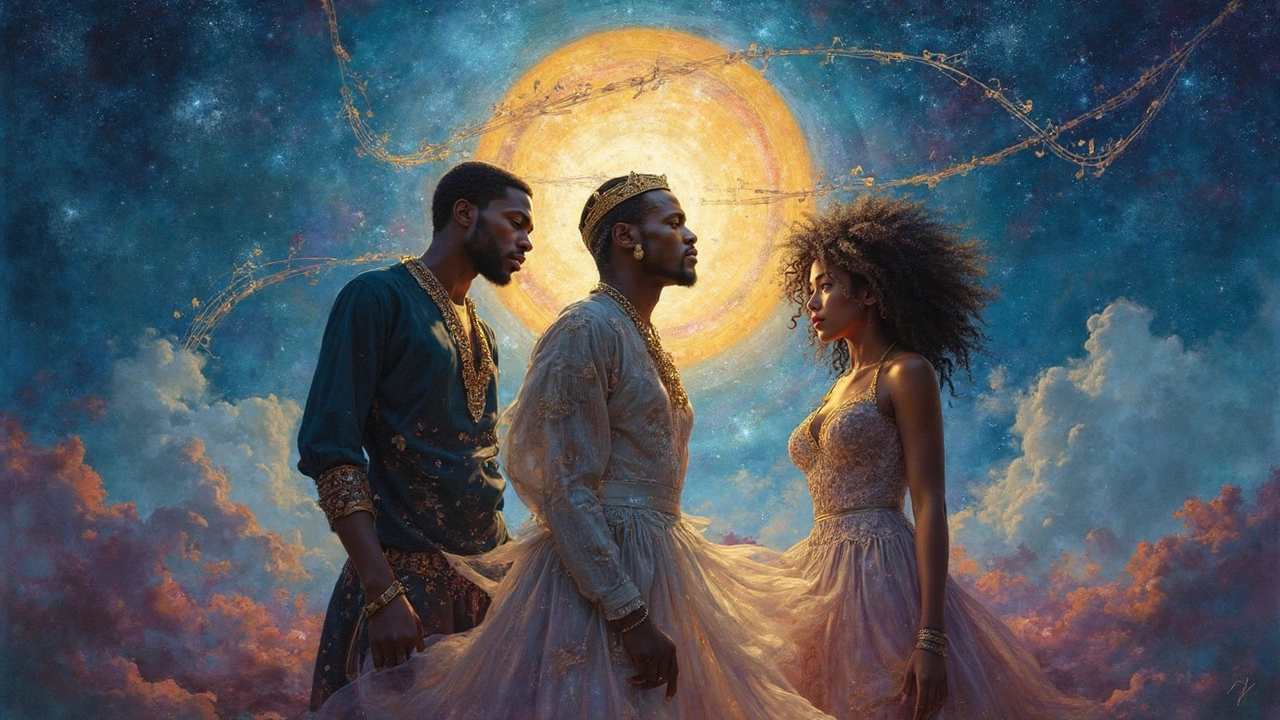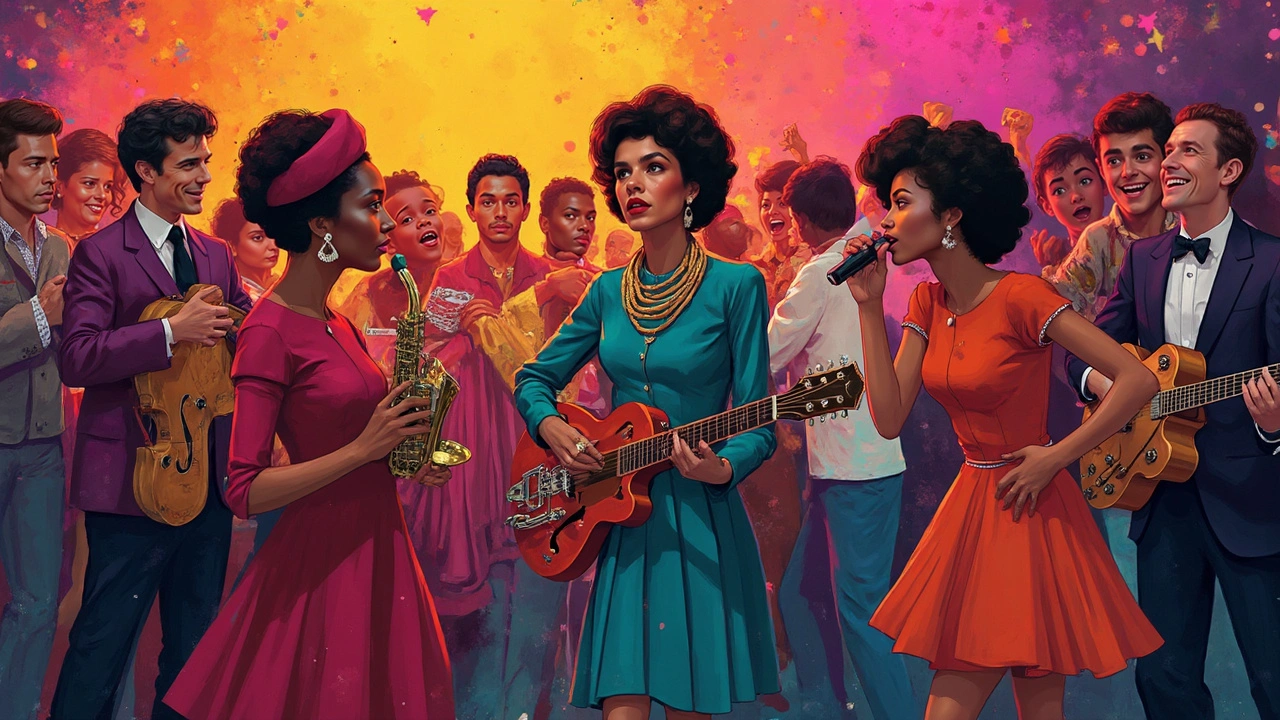Soul music isn't just a genre; it's a feeling, a vibe. And when we talk about the heart of soul music, Motown has to be front and center. But what made Motown so special? Was it the music, the artists, or a bit of both?
Starting in Detroit, aka 'Motown,' in the late 1950s, this music scene was more than just sweet tunes. It was the brainchild of Berry Gordy, who wanted to create music that crossed racial barriers. And boy, did it ever! With artists like Marvin Gaye, Smokey Robinson, and The Supremes, Motown wasn't just pumping out hits; it was making history.
There’s a certain rhythm to Motown music that’s hard to resist. It combines catchy melodies with lyrics that speak to universal emotions—love, heartbreak, joy. This was music that made you want to dance and cry at the same time; it brought people together during a time of social change.
- The Origins of Motown
- Iconic Artists and Hits
- Motown's Influence on Music
- The Legacy of Motown Today
The Origins of Motown
Back in 1959, something magical kicked off in Detroit. That's when Berry Gordy Jr. founded Motown Records right in the heart of the city. Gordy had a clear vision: to create a record label that wasn't just about making hits, but also building bridges across racial divides. This isn't just music history—it's a blueprint for social change.
So, how did Motown get its start? Well, Gordy borrowed $800 from his family to set up the company. He'd been writing songs and producing music, but he wanted Motown to be more than just about the music. It was about forging connections through rhythms and lyrics that everyone could relate to.
First Steps in the Music Industry
Gordy didn't waste any time. He started signing young, talented Black singers and musicians who were full of potential but had yet to get their break. Smokey Robinson was one of the first artists he partnered with, which turned out to be a pretty smart move.
In the early days, Motown released songs that quickly topped the charts, thanks to their catchy tunes and relatable themes. Hits like 'Money (That's What I Want)' marked the start of something big. Soon enough, Motown was a household name, cranking out hit after hit. The Motown sound was born.
The Growth of Motown Records
Motown wasn't just a label; it became a community. Berry Gordy was known for his hands-on approach. He'd have weekly meetings with his artists to talk through the latest tracks and ideas. The label also had something called "quality control," a process where a group of people would listen to new songs and provide feedback, making sure every release was a potential hit.
One interesting fact is that the building Motown operated out of was called "Hitsville U.S.A." Why? Because their output was nothing short of legendary. Between 1961 and 1971, Motown had 110 top-10 hits, a pretty amazing feat for any label, let alone one operating during a time of significant societal change.
Motown wasn't just music; it was a movement. As it grew, it started influencing not just soul music but the entire global music scene. From Marvin Gaye to The Supremes, the artists that started under Motown went on to become legends. And it all began with a small loan and a big dream right in Detroit.
Iconic Artists and Hits
Let's talk about the stars of Motown. This label was a giant factory for talent. At the front of the charge was Smokey Robinson, both as a solo act and with The Miracles. Songs like 'Shop Around' broke new ground and set a high bar for pop success.
The Supremes
No discussion is complete without The Supremes. Led by Diana Ross, these three women were the epitome of soul music class and chart-topping success. Hits like 'Baby Love' and 'Stop! In the Name of Love' turned them into household names, and their harmonies are still unmatched. They were groundbreaking, becoming one of the first African American acts to regularly feature on pop radio stations.
Stevie Wonder and Marvin Gaye
Stevie Wonder and Marvin Gaye? Oh yeah, they're Motown legends too. Stevie started with the hit 'Fingertips' as a child wonder and grew into a musical genius creating hits like 'Superstition' and 'Isn't She Lovely.' Marvin Gaye, Mr. Smooth, made a major impact with 'What's Going On,' a track that still resonates today.
The Temptations and Their Dance Moves
Of course, you can't forget The Temptations. Their synchronized dance moves and slick suits were just as killer as their songs. Tracks like 'My Girl' and 'Ain't Too Proud to Beg' have those hooks that stick in your head and melodies that won't let go.
Let's not forget these were artists that defined not just Motown but an era of cultural change. These songs weren't just topping charts; they were bringing people together, and if that’s not iconic, what is?

Motown's Influence on Music
When you think about the ripple effect that Motown had on the music world, it's nothing short of mind-blowing. In its heyday, it wasn't just a record label, it was a cultural powerhouse that brought forth a new sound that dominated the charts. But what was it about Motown that made such a lasting impact?
To start with, soul music found its heartbeat at Motown. The label's distinctive blend of pop-soul helped bridge the racial divide in America, bringing black music into the mainstream. This was a big deal back in the 1960s when society was deeply segregated.
Timeless Hits that Paved the Way
Many of Motown's songs became eternal classics. Think about 'I Heard It Through the Grapevine' by Marvin Gaye or 'Stop! In the Name of Love' by The Supremes. These tracks didn't just climb the charts; they stayed there, setting a new standard for artists across genres.
Motown's method was unique too. Berry Gordy, the founder, employed an assembly-line style of producing music, much like Detroit's car factories. This allowed him to produce dozens of hit records efficiently and effectively, setting a model that many labels would later emulate.
Inspiring Future Generations
Fast forward to today, and you can still hear Motown’s influence everywhere. Artists like Justin Timberlake and Bruno Mars often pay homage to that classic Motown sound in their music. Even Beyoncé draws inspiration from the powerful female leads of Motown, such as Diana Ross.
The Numbers Don’t Lie
Between 1961 and 1971, Motown had 110 top ten hits. For a label that focused on nurturing black talent in a predominantly white industry, this was groundbreaking. It's a testament to Motown's universal appeal and lasting impact on the world of music.
| Year | Number of Top Ten Hits |
|---|---|
| 1961 | 11 |
| 1962 | 13 |
| 1971 | 15 |
In a nutshell, Motown didn't just influence music; it changed the cultural conversation. It brought people together, shifted perceptions, and left an indelible mark on music history. It's no wonder people still get that warm, fuzzy feeling when they hear a classic Motown track.
The Legacy of Motown Today
Even in 2025, Motown isn't just a blast from the past. It’s everywhere—from the playlists on music streaming platforms to TV commercials and even in current artists' music styles. Many modern musicians are deeply influenced by Motown's infectious rhythms and emotive lyrics. It's no surprise since Motown’s formula for success was simple yet revolutionary: authentic emotion paired with impeccable hits.
One of the most telling signs of Motown's influence is the number of times it's referenced or sampled in new tracks. Artists like Bruno Mars and Lizzo have openly expressed how Motown shaped their sound and performance style. This homage continues to introduce young listeners to Motown's treasure trove of music.
A quote from music historian, Nelson George, encapsulates this perfectly:
"Motown created a soundtrack not just for the youth of the 60s, but for every generation thereafter. Its music is timeless, continuing to inspire and resonate with artists and listeners alike."
Besides influencing artists, Motown has also been integral in promoting racial harmony and cultural understanding. The label's songs played crucial roles in the civil rights movements, becoming anthems for change. This vital contribution is celebrated and studied by scholars worldwide.
Motown in Today's Media
Motown’s reach extends into movies and shows too. Films exploring its history or featuring its music, like "Dreamgirls," have captivated audiences globally. These movies don’t just entertain; they offer a history lesson, reminding us of the lasting impact Motown's had on music and culture.
For those who might be diving deeper, documentaries showcasing Motown's journey are a great start. They lay bare the grit and determination of artists who overcame incredible odds to share their talent with the world.
In conclusion, Motown is more than just a music label; it's a legacy of innovation, resilience, and cultural integration. The heart and soul of Motown continue to beat strong, influencing the music we listen to today and shaping the artists who create it.

